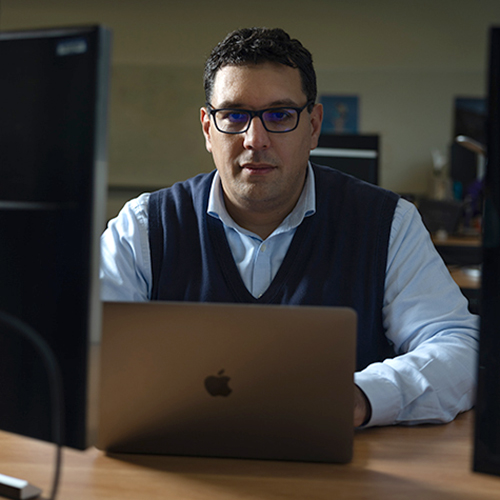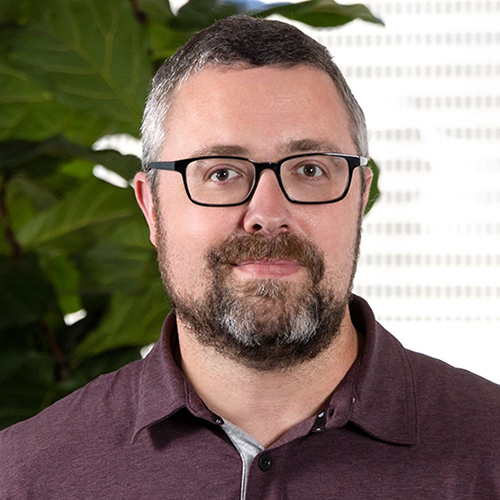UW junior Denny Le was sixteen when he got hooked on live musical theater. He went to see In The Heights at Seattle’s 5th Avenue Theater and was mesmerized. “I was astounded by the amount of talent on stage,” he recalls. Le hopes audiences will say the same about Sweet Charity, the inaugural production of the UW’s Musical Theater program. He will perform in the musical, which runs from November 14 to November 23.
Musical Theater is a new interdisciplinary program in the College of Arts and Sciences, funded through a combination of College and private support. Introduced in 2013 as a three-year pilot (recently extended to five years), the program combines existing courses in dance, music, and drama with new courses specific to musical theater. “Once the program was announced, it was a no-brainer for me that I had to be part of it,” says Le, a double major in musical theater and drama performance.
Wilson Mendieta (MFA, Dance, 2013), a seasoned Broadway performer, is director of the program, working closely with Scott Hafso (MFA, Theatre, 1995; MMus, 1999), senior lecturer in the School of Drama, and Kari Ragan (DMA, Vocal Performance, 2005), artist in residence in the School of Music. They are thrilled to introduce students—and the UW community—to an art form they love. “Musical theater has this heightened reality that embraces the idea of escapism,” says Mendieta. “When done well, it can transport audiences into a different world. And it embraces three art forms—music, drama, and dance—that we connect to in very different ways.”
To ensure that students make the most of their classes, majors first take American Musical Theater, a historically based survey course taught by Larry Starr, Ruth Sutton Waters Endowed Professor in Music. "Recounting the history and achievements of American music without considering works like Show Boat, Porgy and Bess, West Side Story, and Sweeney Todd, to name just a few, would be like presenting the history of the symphony without considering Beethoven," says Starr, who specializes in 20th-century music and American music. Adds Mendieta, "The students need to understand musical theater's essence. Then when they take acting and dance and singing courses, they can approach those with the style of musical theater in mind.”
With Sweet Charity, students will have an opportunity to share what they’ve learned. The musical is a tender, poignant, and funny look at the love adventures—or rather misadventures—of the gullible and guileless Charity Hope Valentine, a dancer-for-hire at a seedy ballroom. “It’s a fun show,” promises Mendieta. “It’s hopeful and romantic and a little twisted.” It also offers meaty roles for the ensemble as well as the leads. “It is important for students in the ensemble to feel they are an integral part of the storytelling and this show really has that,” Mendieta says. “The ensemble is on stage a lot.”
To be a successful musical theater performer today, you truly have to be a triple threat. And being a great triple threat is not an easy title to earn.
Le is excited to be in the ensemble, a role that helps create the world of the play. "Whatever atmosphere a scene calls for, the ensemble is there to provide it," he says. “We are there to dance like rich snooty people at the Pompeii Club in ‘Rich Man’s Frug’ and we are there to be brainwashed potheads in ‘Rhythm of Life’ The work of the ensemble shows the audience what kind of world Charity lives in instead of just telling them. We feed off each other’s energy to bring this show to life.”
With Sweet Charity opening just seven weeks into the academic year, the cast and crew had to ramp up quickly to prepare, attending daily four-hour rehearsals since the first day of class. That grueling schedule is par for the course in musical theater, says Mendieta, who sees the UW’s ambitious production as great preparation for what students will face after graduation.
In addition to performance opportunities, Musical Theater prepares students for careers through a capstone course that touches on the business side of the field. Students create a showcase production to share their talents with movers and shakers in the local arts community, which involves both developing the content and reaching out to potential audiences. “The students have to think about how to market themselves and how to manage and produce something,” says Mendieta. Adds Hafso, “This will hopefully set students on a good and healthy path, with many answers—and, even more important, a whole lot of questions—that their own work in the profession will help to answer.”
It helps that the Puget Sound has strong musical theater presence, with successful Broadway producers living here and several theaters devoted to the genre. Tony Award-winning producers Kenny and Marleen Alhadeff are founding donors of the UW Musical Theater program and have provided invaluable advice. Cast and crew members of national touring shows have visited classes, from a stage manager for Kinky Boots to a cast member of A Chorus Line, the latter providing behind-the-scenes stories while teaching UW master classes in dance.
But audiences needn’t concern themselves with the ins and outs of the business when they watch Sweet Charity. They can just sit back and enjoy the show. “I hope audiences have a good time,” says Le. “If they leave with just one little melody stuck in their head, then we’ve done our job.”
Sweet Charity runs from November 14 through 23 in Meany Studio Theatre. Visit artsuw.org for schedule and ticket information.
To learn how you can become a Founder of the Musical Theater program, visit www.washington.edu/giving/ musicaltheater or call (877) 894-4387.
More Stories

A Statistician Weighs in on AI
Statistics professor Zaid Harchaoui, working at the intersection of statistics and computing, explores what AI models do well, where they fall short, and why.

Dancing Across Campus
For the dance course "Activating Space," students danced in public spaces across the University of Washington's Seattle campus this spring.

Working Toward Responsible AI
Artificial intelligence (AI) is an essential tool at Indeed, a global job-matching and hiring platform. Trey Causey (2009) works to ensure that the company's AI promotes equity and fairness.